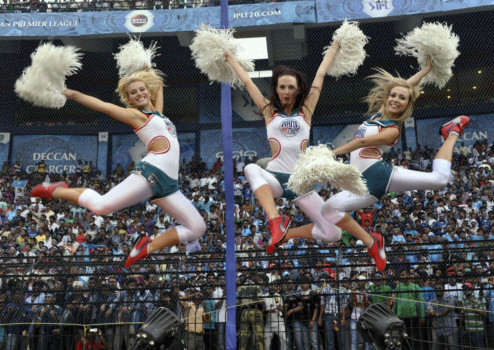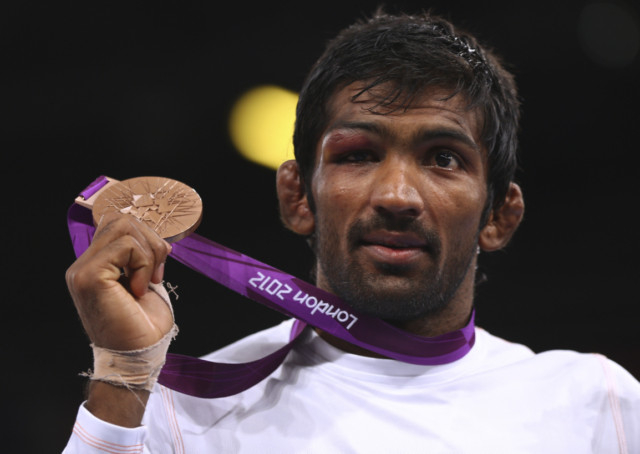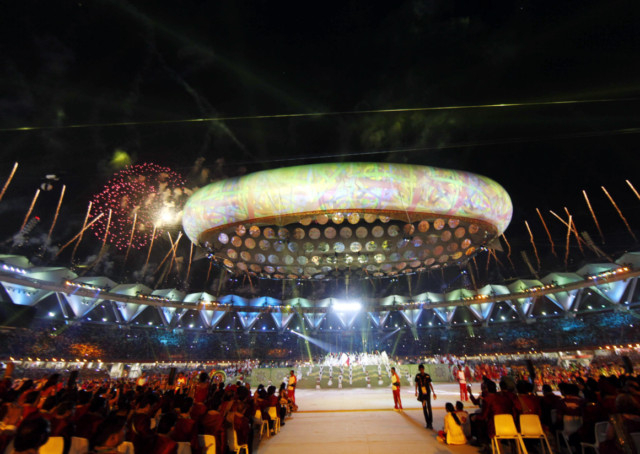
For the second-most populous nation on earth, India’s track record at the Olympic Games is nothing short of dire. Out of 1.2 billion people, only 18 medals — 11 of which have been gained from hockey alone — have been brought home from the world’s most prestigious sporting event.
At the London 2012 Games, India accumulated a record six medals (two silver and four bronze). Not a gold in sight. The only comparable nation to India, in terms of population and thus athletes to choose from, is China. The Far Eastern superpower achieved a whopping 88 medals (38 gold, 27 silver and 23 bronze).
Perhaps juxtapositions to the second-ranked Olympic nation are unjust. Grenada (population 104,000) ranked 50th, three places above India, by winning a gold medal.
Limited budget
So why has India performed so badly at the Olympic Games? “Simply, there is very poor and limited finance for Olympic sports such as athletics and swimming in India,” Virendra Nanavati, former Secretary General of the Swimming Federation of India, tells GN Focus.
“We are not getting the right funding for programmes to identify talent and develop athletes for competition against the rest of the world.
“The government has a very limited budget for sports compared to other sectors,” he says. “The Sports Authority of India [SAI] is spending it on Olympic sports when they get it, but they don’t have enough for the most important part of the process, which is infrastructure and professional training.”
In July last year, the SAI handed out financial assistance of Rs101.89 million (Dh6.8 million) from its National Sports Development Fund for customised training to medal prospects in the London Olympics.
Although this is a hefty sum, it’s indicative of the ad hoc approach that offers too little too late. This mega sum was invested in 52 competitors, four coaches and six support staff at the last minute, as opposed to looking at the long term and developing infrastructure for future athletes that would stand a better chance of success given a prolonged training period.
Send in the suits
Nanavati adds that the financial constraints have been so severe that the sports federations have been sending their promising athletes to the UAE and China because the facilities are so much more advanced and better funded abroad. “We have some facilities, but they’re not funded [properly] because it needs a huge amount to maintain.”
The 21st century sports market has highlighted the necessity of corporate funding, over and above government handouts, for franchises to flourish. Long gone are the days when etiquette, physical prowess and cucumber sandwiches were enough to entice the crowds. Now we want flashing neon lights, cheerleaders in skimpy outfits and blaring music to truly drown out any modicum of sporting decorum that survived the emergence of the new millennium.
When you offset the success and mania of the Indian Premier League (IPL), where stadia, team shirts, cricket bats and even umpires’ jerseys are emblazoned with overlapping, garish corporate sponsors — each splashing cash for exposure — against the barren backdrop of Olympic sports, the underlining problem of India’s poor Olympiad performances is manifest.
“Corporate companies need to help more with investment. Where the IPL has gained from corporates, and also like hockey has been taken by Sahara Group, those sports are doing well. If swimming and athletics were taken up by the corporate sector, then I’m sure we’ll come up in standard,” says Nanavati.
Now, in a country where corporate backing has almost remained the exclusive domain of cricket, this is slowly happening. A handful of corporate companies have recognised the economic dividends to be reaped from successful sponsorship of Olympic athletes after the country’s athletes returned with their biggest medal haul ever: for it is a patent trend that sporting success breeds economic prosperity.
The Olympic Gold Quest (OCQ), an organisation that receives Rs5 million each year from investor and trader Rakesh Jhunjhunwala, supported four of the medal-winning athletes at London 2012.
Looking to Rio
Viren Rasquinha, Indian national team hockey player and COO of OGQ, was quoted in The Economic Times newspaper as saying Gold Quest plans to raise Rs70 million annually in time for the Olympic Games in Rio de Janeiro in 2016. Some 20 athletes, aged between 10 and 15, have already started training under the guidance of Gold Quest in anticipation of the 2020 Olympics.
The Sahara Group, known for its commitment to Indian sport, is building an Olympics Centre in Amby Valley later this year to train more than 100 athletes over the next four years. And the private conglomerate Jaypee Group is developing the infrastructure at its sponsored sports complex in Greater Noida.
One of the most prominent corporate influences in Indian Olympics circles is the Mittal Champions Trust (MTC), which funds athletes directly. Founded by steel tycoon, Lakshmi Mittal in 2005, the trust has laid out plans to invest up to Rs550 million in facilities and training in time for the Rio Games.
Manisha Malhotra, CEO of MTC, says corporate funding is every bit as important as governmental efforts to kick-start a successful Olympic culture in India. As such, the Trust is now working with the government to “broaden the talent pool” by bringing in experts to “create a sustainable sporting infrastructure”, she says.
Having ploughed $2 million (Dh7.34 million) into sponsored athletes at London 2012, MTC is now “investing and taking on more athletes of all age groups”, Malhotra says. “We will provide world-class [training] to athletes who will all be vying for medals at Rio.”
Invaluable financing
Yogeshwar Dutt, who won the bronze medal in the 60kg men’s freestyle wrestling for India at the Olympic Games last year, was backed by MTC on his road to London. He tells GN Focus the financial investment he received was invaluable.
“My struggle and hard work to win an Olympic medal is an example not only to future athletes but even coaches and investors. They will look at my example in their achievements,” says the 30-year-old grappler.
Dutt’s corporate-supported perfor-mance in London is all the more remarkable considering his previous appearances in Olympics resulted in 18th and 9th place rankings, in the same event, in Athens and Beijing respectively.
“I was signed by Mittal Champions Trust after my loss in Beijing 2008, and this helped during my knee injury recovery. They believed in me all the time and provided everything I needed, from training and physiotherapy to medical care,” says Dutt.
It appears the corporate push was what he needed to shine.
And Dutt’s feat, in company with the other five Olympic medallists, could be the kick-start the country needs; for nothing breeds success like success. You only have to turn to China again for the best example. China won its first gold medal as recently as the 1984 Games in California, where they won 37 medals in total. Now the Chinese government aims for a return of 122 medals from Rio. And it was only after Beijing won the right to host the 2008 Olympic Games — in 2001 — that it began hunting medals in earnest.
Perhaps the same could be true for India: the country has ambition enough to host monumental sporting events, so why not?
The ability to host and its permutation aside, the Indian government has set a target of 15 medals in Rio and 25 medals come 2020. To soar to such lofty heights, every corporate paisa matters.




